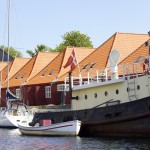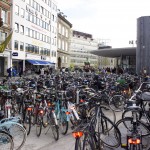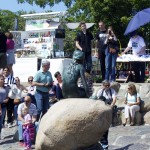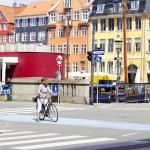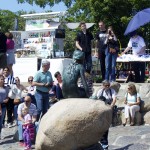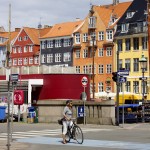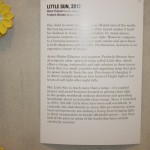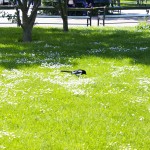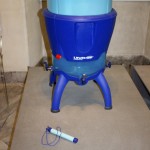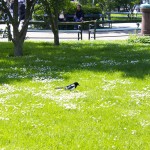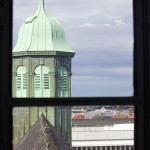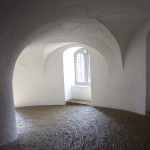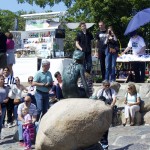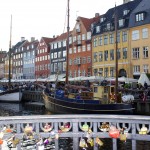We wanted to know what CELOP students think about one thing they have seen in Boston that seems culturally odd to them. A huge thank you to Diana Lynch's Academic Writing class for sharing their responses with the CELOP Sun!
Eating in class - by Min Kim
Students in Boston eat everywhere even during class and meetings. In this essay, I am going to talk about what funny cultural thing I have experience since I have been in Boston. In order to describe my funniest experience, I need to go back to my first counseling theory class. There were over 40 students and an instructor described a textbook and papers we needed to write. At that time, I could smell pasta and salad so I looked around the classroom and was surprised because someone was eating pasta and salad during the class. The most interesting thing in this situation was that no one told him to stop eating, not even the instructor. Everyone was doing what they needed to do during the class, e.g., reading and writing. However, in S. Korea eating is not allowed during class because Koreans have been trained that students should be quiet and show respect to the instructor. If I eat my lunch during class, others will make me stop eating and I will be kicked out of the classroom, because it is pretty rude. I could not believe it and I was confused by what I saw and experienced during class in Boston. After class, I asked my American friends and heard that eating lunch during class is a common and typical behavior in Boston. After that, I have enjoyed eating my lunch during meetings and during this class even though it is not acceptable in my home country.
The Bostonian Accent - by Aziza Yahya
The thing which stunned me most is the Bostonian accent. There are two reasons for my surprise. First, they talk very fast as if they eat words. I faced difficulties with the cashier in the market when he asked me “do you need a bag?” I said, "what was that?" Then I understood him after he had repeated it for me three times. Second, in the Bostonian accent they do not pronounce the "r" sound. For instance, when I went to buy a pair of skates, I met an old Bostonian man who works in the skate shop. I asked him if he was from England. He laughed and then told me that the reason why they talk this way is because Boston was a British colony. That's why the Bostonian accent amazed me when I came to Boston.
American Socks - by Wadee Alazamah
When I first came to Boston, everything was different from my culture. The most interesting thing I noticed that looked funny to me was the colorful socks! I noticed that Americans love to wear colorful and cheerful socks even on formal days. For example, one of my professors always wears yellow shiny socks with orange circles all around his socks. I think there is a secret behind this weird habit that Americans do and why they love it. In my perspective, it felt awkward to me because in my culture only kids wear those kinds of socks. Seniors try to look more serious and responsible. What we expect from an elder person when it comes to socks is to wear a solid color such as, white, black, or brown. For instance, another senior professor wears a tie with pumpkin faces on it. I would never see this in my culture, ever! In conclusion, I think Americans do what they love and don’t care about the negatively perceived image from other people. After all, it is cultural.
The Secret of the Bostonian's Smile - by Mansoor Alameri
People smile at me everywhere I go in the city of Boston . People were so nice to me at the school, housing, coffee shops, restaurants, and even on the streets when I passed them by. I enjoyed my first month in Boston last year. I was experiencing the so-called "honeymoon,'' which was the first phase of culture shock. I was pleased by that privilege, which I thought at the beginning, nobody had ever experienced. I have experienced that because I saw myself as special and different in their eyes. After a short period of time, I began to ask myself, " Why are these people so nice to me?" My mind extracted many fake answers, which I was convinced for a while were true. I thought beautiful facial expressions and pleasing smilies both reflected an interest in talking to me or showing a warm welcome for a foreigner. That was what I deducted, relying on my cultural background of the meaning of a smile. However, when I settled down here, I found out that these nice faces and exaggerated smiles were just simple references of daily greetings for Bostonians. They had superficial meanings and had nothing to do with what I had earlier thought. Ever since then I have been trying to acquire a ''superficial'' trait of smiling at every face I ever meet, even though I do not know them very well. Smiling and being nice to others, for Americans, have an utterly different cultural perception than mine. I am sure that Americans have deeper and more expressive connotations than what I have become aware of.
Small Parking Spaces - by Zhenyu Wang
When I just came to Boston, I saw a very interesting thing, which was that the parking distance between two cars was so close. I was really shocked because I couldn’t imagine how drivers have to drive the car to the left. For me, I have had a driver's license for two years in China. The hardest thing for me is to back up a car into a parking space. However, in China Parking spaces have a bigger distance between each car so that drivers can avoid a car crash and to easily allow drivers to get out of the spot. When I went to Japan, they not only had a longer distance between the two cars in parking spaces, but they also had a longer distance to avoid rear-end crashes when drivers were driving out of the way. So, when I saw this scene in America I felt very shocked, especially when drivers reversed. Several times I saw drivers in trouble. For example, the driver bumped into a car, which was in front of his car and behind his car and he still couldn’t get out of his parking spot. Now, every time I see the same situation I really feel sympathy for these drivers. At the same time I still feel this situation is so strange. I can’t figure out if these problems happen because the drivers are selfish or just because of the different rules in the U.S., which really are not reasonable rules for drivers.
Dogs and Cats from the Sky... - by Mohammed Alshajajeer
“The sky pours dogs and cats,” someone said. I have heard this phrase since last autumn. I usually think about this phrase when I see dogs and cats on the pavement walking along with people. My experience about Americans' culture is they love having pets. Currently, I live in Brookline, and one of my neighbors has pets. She told me that she has three cats and a dog. “The sky pours dogs and cats,” means a lot of rain. Last autumn in Boston, we had heavy rain for numerous days that meant the sky poured water as much as dogs and cats on the sidewalks. Personally, when I realized the phrase, I laughed a lot and I asked myself why would Americans make up this phrase? I would have made up another phrase, such as the sky pours water as much as cars or beer. “The sky pours beer!!!!”
A Secluded Wonder - by Miguel Angel Martinez Porras
It's surprising what human begins can learn from others. People have several perceptions of the world as it is. Particularly in Boston, the place that I had just arrived to, has become more than a second home even though I'm just here for the summer. I feel that Boston is where I belong. Peoples' personalities in Boston have changed my perspective of how I see life. Nevertheless, I have become so attached to this place that I'm willing to stay at Boston University for the entire school year. Indeed I have found that the Bostonian accent can be kind of funny. The air feels different when you arrive here. Boston becomes a stable place to live in. People from different cultures are gathered here to make the best out of research. It’s amazing how different diversities can learn from each other. Boston is a place where wonders happen in a place that is indescribable until you get here. In Boston, teachers from different cultures are here to help you do what they came here to do: research. I know that it is going to be hard to say goodbye to Boston after the summer ends, but I'm willing to come back.
Alarms Alarms Everywhere - by Ana Paula Pita
One of the things that I found peculiar and very different from my country, is how the Boston emergency services react. The police and the firemen always arrive in a short time and with a massive amount of trucks, alarms, and staff. Since I arrived in Boston, there has not been any day that I haven’t heard an alarm. Even though the incident or the emergency may not be a big deal, Bostonians exaggerate the situation. In my country, Spain, the emergency services are extremely fast but they just bring the ¨necessary¨ services. For example, last weekend there was a shooting near BU and unfortunately one person died. The streets were shut down for hours and there were eight ambulances, eight! Just for one cadaver. Also, 4 black cars arrived with investigators to find out what was the problem, and don’t forget about the 4 helicopters going around and the news services. In my opinion, that was a massive exaggeration of the situation. In conclusion, this is something that needs to be fixed and that shocked me the first time I saw the emergency services in action, but now I am getting used to it.
The Blue Sky of Boston- by Alanoud Alqahtani
What I noticed in Boston from my very first day here was its wide baby blue sky and its clouds that look like cotton candy. I remember waking up after my tough trip, exhausted. I wanted to have breakfast so I went out to the hotel’s lobby. While I was looking for something to eat I looked out to the street. The sky was really close to earth and its blue color was clear and attractive. I forgot everything I was planning to do that day, and walked out of the hotel. I was walking and my eyes were fixed upon the sky. I have always had deep feelings towards the sky, especially if it was cloudy, since my childhood. I used to go out with my father and we used to count the clouds. That day I felt that my father was not at my home country but here with me. That is why I really wanted to hug those clouds. I remember that day I did not have breakfast, I just bought a Starbucks iced coffee and sat down to watch that beautiful sky.
The Transportation Issues in Boston - by Romayh El Jurdi
Is it possible in the United States of America to have an obsolete traffic system? As a Civil Engineer who graduated from the American University of Beirut (AUB), I was immersed in the American codes that are relevant to transportation. While I was in university, I perceived the United States transportation system as an ideal and superb system that is designed according to intricate and thorough standards. However, my conception changed drastically when I visited Boston for the first time in 2013 due to the deficient implementation of the system. First, there is always traffic in many areas around Boston. Moreover, the streets need a spectacular renovation in order to be in line with the American standards and codes. However, what surprised me the most is that people who live here don’t abide by the rules related to crossing the streets in the allocated time that is preset and designed by prudent engineers. Personally, I don’t envy any driver in Boston for two reasons. First, I feel that the priority is for the people who are walking around the city and not for the drivers. Second, the cars need regular maintenance due to the bad quality of the asphalt in the major and minor streets in the city. In the end, I think that every city has its peculiar issues but sweeping this aside the inimitable ambience of Boston makes it a perfect place to dwell in until I complete my Masters degree.
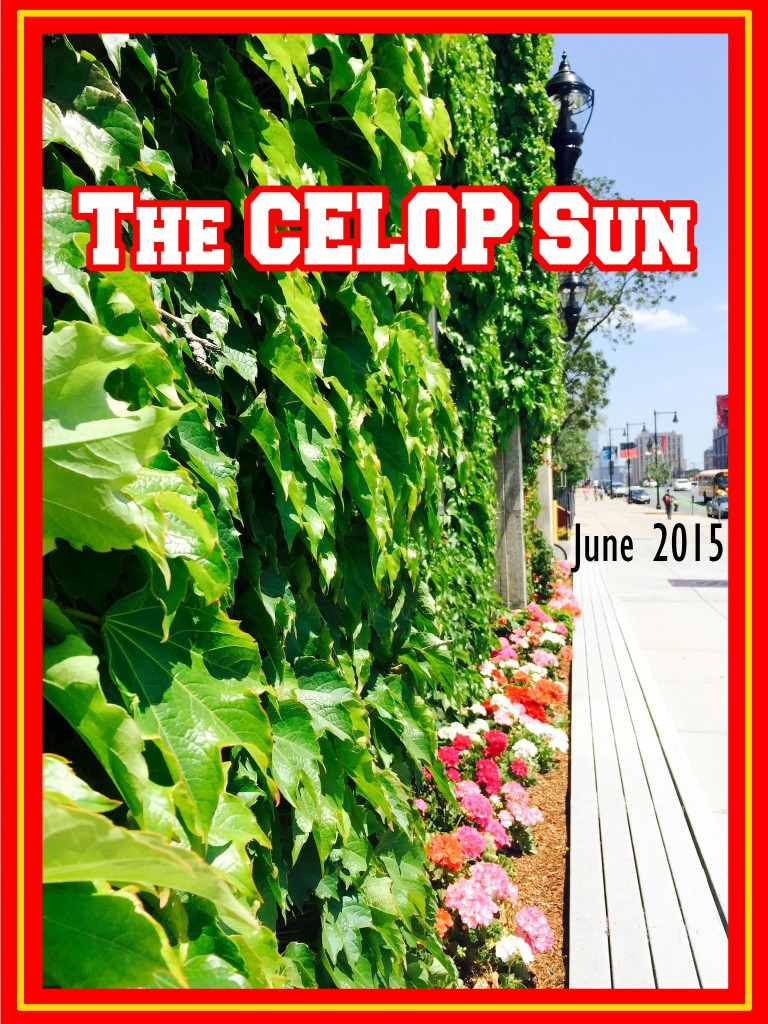

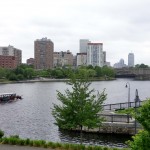
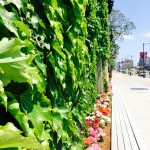
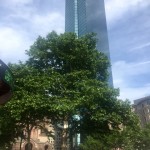





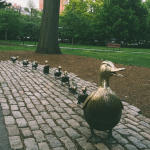

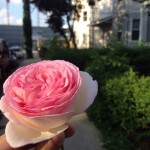










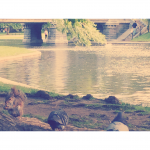




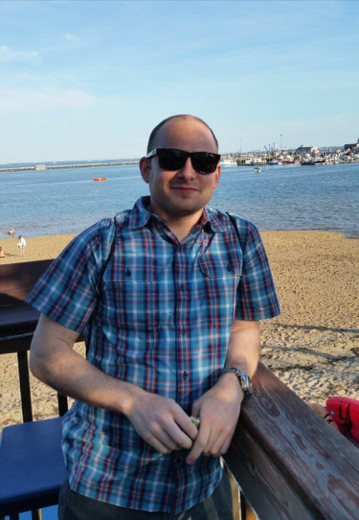 Here I introduce a 28 year old Swiss class mate, Gian, who has studied a masters of computer science. His first language is Romansh. His passion for learning the English language is what brings him to CELOP in Boston. He says the city of Boston has so many cultural activities, the environment is very literal.
Here I introduce a 28 year old Swiss class mate, Gian, who has studied a masters of computer science. His first language is Romansh. His passion for learning the English language is what brings him to CELOP in Boston. He says the city of Boston has so many cultural activities, the environment is very literal.




